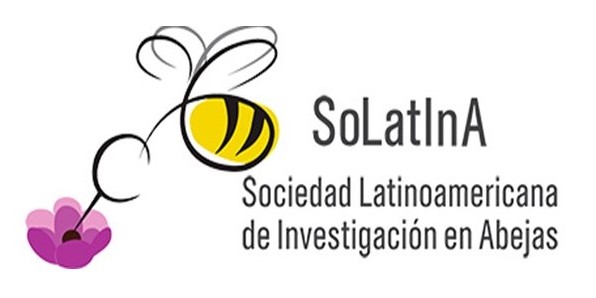On November 14 Th and 15th 2022, the IV Workshop of the Latin American Society for Bee Research (SOLATINA) took place at the Universidad San Antonio Abad del Cuzco, in Cuzco, Perú. Sixty researchers, 39 female and 21 male, from Argentina, Brazil, Bolivia, Colombia, Costa Rica, Chile, Ecuador, France, Honduras, Mexico, Peru and Uruguay, participated in various conferences and discussion fora.
The meeting was organised by SOLATINA’s Directive Committee and the COLMENA Network (CYTED). The Eva Crane Trust, the CYTED program and the Universidad San Antonio Abad del Cuzco generously supported the event.
As part of this workshop two prominent bee researchers were invited to give plenary talks. Dr. Guiomar Nates Parra on "Stories about Bees", and Dr. Alberto Galindo, "Why Drone Congregation Areas are important to the health of Apis mellifera?."
Five round table discussions were held; each one focussed on the research areas covered by SOLATINA's working groups. The following is a summary of the topics discussed, the conclusions, and planned future activities.
Working group on Biology and Diversity of Bees
The Biology and Diversity of Bees working group was, up to this meeting, divided into three subgroups: meliponiculture, bumblebees, and bee systematics. In this workshop the members of the meliponiculture and bumblebee subgroups organised two consecutive sessions each with its own program, while the leaders of the bee systematics subgroup contributed to the activities of both. As a major step towards the strengthening of the meliponiculture and bumblebee research areas within the society, it was decided that both subgroups would become separate working groups within the society. The bee systematics subgroup will remain within the Biology and Diversity of Bees group until it gathers more members and a specific workplan is established.
The first part of the session corresponded to the meliponiculture group and included five short talks on the following subjects:
- Diversity of stingless bees in the neotropics, and their conservation status. Dr. Ricardo Ayala of UNAM, Mexico, provided a broad overview on our current state of knowledge and challenges for the region, and was followed by Dr. Favizia Freitas de Oliveira who focused on diversity and conservation strategies in Brazil.
- Sustainable and responsible meliponiculture. Dr. Javier Quezada Euan and Dr. Aurora Xolalpa Aroche, both from Mexico, and Dr. Ingrid Aguilar Monge from Costa Rica, each gave individual short talks on topics related to responsible practices in meliponiculture. A set of common problems impacting the sustainable growth of meliponiculture in the region were identified as potential areas for collaborative research.
- Norms and regulations for meliponiculture. Dr. Fernando Muller from Argentina presented an overview of the status of norms and legislations appertaining to meliponiculture and its products in the region. He focused on the categorization of a given species as potentially useful for meliponiculture, and the implications of such a designation.
The group will focus its efforts on the completion of a comprehensive diagnostic for the status of meliponiculture in the region. A national liaison will be responsible for engaging a local team to gather relevant information on multiple aspects, from norms and regulations to knowledge on which species are managed. A regional database will be assembled by the group coordinators. The objective is to determine to what extent the evident growth of the sector is accompanied and supported by national agencies or regulatory authorities following guidelines provided by researchers or based on scientific knowledge of stingless bee conservation. The results of this diagnostic will have a positive impact for the rational development of meliponiculture in the region.
The second part of the session corresponded to the bumblebee group and centred around three subjects:
- Diversity of Bombus spp. in the neotropics, and their conservation status. The discussion on the subject was opened by a conference by Dr. Ricardo Ayala of UNAM, Mexico. He presented an overview of our current knowledge of the taxonomy and distribution of bumblebee species inhabiting the neotropics, highlighting their importance in native ecosystems and their potential for crop pollination.
- Rearing of native bumblebee species. A report on the “First Workshop on Rearing Strategies for Native Bumblebees in Latin America” was presented by Dr. Alejandra Martínez de Castro (ECOSUR, Mexico) and Dr. Sheena Salvarrey (University of the Republic, Uruguay). This workshop took place on September 17th, 2022, with participants from Bolivia, Mexico, Argentina, Italy, and Uruguay.
- A new initiative to monitor the extent of the use of bumblebee colonies in Latin- America, launched by Dra. Carolina Morales (UNIBIOMA, Argentina). Dr. Morales presented what is known about the extent of the use of bumblebees for crop pollination, highlighting serious gaps in our knowledge for the region, and outlined the steps the group will follow to start the first regional study to determine to what extent bumblebee colonies are used in Latin America.
Working group on The Impact of Agrochemicals and Other Agricultural Practices on Bee Health
This session included reports and discussion from different subgroups:
- Subgroup “Agrochemicals used in Latin America for food production”. Dr. Patricia Aldea (Chile) led a conference on recent advances in the research carried out by this subgroup. Later, Dr. Grecia De Groot discussed the research goals for the future.
- Subgroup “Agrochemical residues and other contaminants in beehive products”. Dr. Patricia Aldea presented the aims of this subgroup and invited researchers to join in.
- A quick overview of a new subgroup that will focus on the “Effects of pesticides on native stingless bees (Meliponini)”.
Working group on Pests and Pathogens Affecting Bees
The session of the working group on Pests and Pathogens Affecting Bees included:
- A round of introductions by new members to familiarize the other members with their research themes.
- Subgroup “Honey Bee Pests and Pathogens in Latin America”: Dr. Belén Branchiccela summarized the results of the project aimed at assessing the prevalence and distribution of honey bee pests and pathogens in Latin America. The group agreed to work on an opinion paper that will present an overview of the current situation and challenges faced by the research efforts focused on bee health in the region.
- Subgroup “Genetic characterization of Latin American bees”: There was an open discussion about the objectives of the subgroup, the progress and the problems researchers experience to achieve a reliable genetic characterization of bee populations in the region. The need for the establishment of baseline research capabilities in some countries was underlined as a major problem to be solved.
- Subgroup “Ecoregions”: Members were briefed on the status of the project by the leaders. Future activities and deadlines were established, and a meeting for the subgroup was scheduled for February 2023.
- Subgroup “Emerging pests”: The revised version of the manuscript entitled “Current status of the small hive beetle Aethina tumida in Latin America” had been submitted to Apidologie prior to the workshop. Dr. Natalia Bulacio shared the findings reported in the paper. The subgroup will now work on a brochure focused on small hive beetle (SHB) monitoring strategies and good beekeeping practices to aid in the prevention of SHB dispersal.
Working group on Products, Services, and Commodities Related to Bees
The session started with a brief introduction on the objectives of the group, and an evaluation of how the group has worked. Two subgroups were organised, one on value added beekeeping products coordinated by Dr. Andres Delgado Cañedo; and a second group on pollination services, coordinated by Dr. Marina Basualdo and Rubem Avila Jr.
- Subgroup “Pollination services”. The members of this subgroup performed a systematic review of the plant species used by the native peoples of Latin America. Approximately 100 plant species were surveyed taking into consideration their reproductive characteristics and their dependence on pollinators. Preliminary results show that from all pollinator groups, bees are significantly more important for the pollination of these plant species, and native bees in particular play a crucial role in the pollination of 40% of the surveyed plants. Only 10% of these plants are solely pollinated by Apis mellifera. A reproductive vulnerability index for the plant species studied was determined for each country using the data on their reproductive characteristics and their associated pollinators. Plant species in Brazil, Bolivia, and Peru had the highest rates of reproductive vulnerability.
After the presentation, a discussion followed about approaches to analyse the data from different perspectives, including the potential anthropological implications of the findings. A list of tasks to finalize the work and prepare a draft manuscript were outlined.
This work is unprecedented because it covers the first characterization of pollination niches and reproductive risks for plant species of cultural, social, economic, and nutritional importance; traditionally used by the native peoples of Latin America.
Working group on Monitoring of Bee Colony Losses
The session was divided into two parts. First, Dr. Fabrice Requier and MSc. Malena Sibaja introduced the objectives and history of the group. They presented the results obtained from 2016-2021 and the manuscripts in preparation based on those results. The long-term trends, the future survey diffusion strategies and result dissemination efforts were outlined. Finally, based on the experiences gathered so far, different lines for future work based on the surveys were proposed. The proposed strategies and the future activities of the group were discussed.
SOLATINA's IV Workshop was a success thanks to the active participation of all researchers  and the generous sponsorship provided by EVA CRANE TRUST and CYTED. We are certain that the commitment of our associates to continue collaborating on the lines of work proposed in this workshop will promote the advancement of bee research in Latin America.
and the generous sponsorship provided by EVA CRANE TRUST and CYTED. We are certain that the commitment of our associates to continue collaborating on the lines of work proposed in this workshop will promote the advancement of bee research in Latin America.
Dra. Karina Antúnez
Ref.: ECTA_20220303
Completed: Nov. 2022

